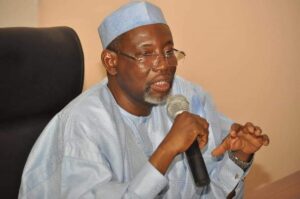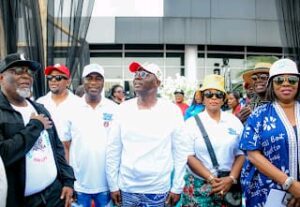Subsidy Removal: Invest in refineries, subsidize commercial transport — Group tells Tinubu
As stakeholders keep making suggestions on how to cushion the impacts of the discontinuation of payment of subsidy on Premium Motor Spirit (PMS), popularly called petrol, a group, Africa Leadership Group (ALG), has called on President Bola Tinubu to invest in modular refineries to create jobs for the unemployed in the Country.
This is just as the group called on the President to subsidize commercial transportation or buy and distribute new buses to States for the masses, while submitting the government invest the money saved from subsidy payment in manufacturing or agriculture, with particular focus on small medium enterprises and smallholder farmer.
The group in a statement released by its Director of Publicity and Media Relations, Lara Gureje-Oderinde, said removal of subsidy has had immediate consequences on the prices of goods, essential services, and food items, causing significant worries among millions of Nigerians.
The group in its findings from a survey it carried out on the impact of the subsidy removal and the planned palliative measures of the government, said: “The decision to remove the petroleum subsidy regime, as declared by Mr. Bola Tinubu in his inaugural address, has had immediate consequences on the prices of goods, essential services, and food items, causing significant worries among millions of Nigerians. The sharp increase in transport fares has added to the burden on citizens.
“The impact of increasing domestic fuel prices on the welfare of households arises through two channels. First, households face the direct impact of higher prices for fuels consumed for cooking, heating, lighting, and personal transport.
“Second, an indirect impact is felt through higher prices for other goods and services consumed by households as higher fuel costs are reflected in increased production costs and consumer prices.
“In response to the outcry from Nigerians, the administration proposed to disburse 500 billion naira to 12 million households over 6 months. However, some analysts believe that this approach does not adequately address the fundamental issues and impact resulting from the subsidy removal.
“Africa Leadership Group (ALG), a citizen-centric, and effective governance leadership organization conducted a survey to gather citizens’ opinions on how best to spend the 500 billion naira. The top three priorities identified by the citizens were: Invest in modular refineries to create jobs, 48.7%; Invest the money in manufacturing or agriculture, with particular focus on small medium enterprises and smallholder farmers; 48.1%; Subsidize commercial transportation or buy and distribute new buses to states, 41.7%.
“Other actionable pathways suggested by citizens include investing in health or education, subsidizing electricity tariffs, distributing funds to the poor through a transparent process, investing in areas affected by terrorism, and focusing on food security initiatives.
“ALG believes that a phased implementation of the subsidy removal would have been more prudent, allowing citizens to plan and adjust their budgets accordingly.
“The immediate effects and impact of the removal have been hard on many families, leading some to abandon their vehicles due to the high fuel prices.
“The citizen survey also confirmed that the government should consider investing a portion of the 500 billion naira in climate-smart agriculture pilot food production initiatives in different geopolitical zones so as to enhance food security and reduce dependency on imports.”
The group recommended that overall, the government must prioritize the well-being of its citizens, especially in terms of food security and transportation.
“A fair and equitable transition towards a sustainable and economically secure future can be achieved by carefully planning and implementing measures to mitigate the immediate effects of the subsidy removal while simultaneously investing in long-term solutions.
“Understanding who benefits from fuel price increases and the welfare impact of increasing fuel prices is key to designing and gaining public support for any relief program funding.
“Given the adverse impact on poor households, it is important that mitigating measures be implemented quickly to protect these households by expanding existing safety net programs, possibly with some improvements in targeting; and increasing high-priority spending that benefit the poor, such as in health, education, and infrastructure,” ALG submitted.




